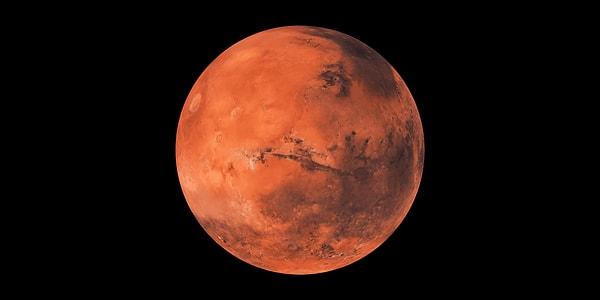Search for Life on Mars Could Be 'Worst News Ever' for Humanity, According to Experts
You may have heard of the Fermi Paradox, but if not, here's the gist: with the probability of extraterrestrial life being so high in the vast universe, why has no one reached out to us? If, given the universe's immense age, there are likely many civilizations far more advanced than ours (excuse the assumption), why aren't they doing what we do—sending probes and desperately searching for signs of other life? Experts now suggest that finding life on Mars might bring the 'worst news ever' for humanity. Let's delve into the implications of this paradox and the potential consequences of discovering life beyond Earth.
One idea is the Great Filter, suggesting that before alien civilizations reach the point where they can leave their solar systems and colonize their galaxies, something prevents them from doing so, or else we would see evidence of it in our Milky Way.

Whether this is a step from multicellular life to tool-using animals or the point we are at now, exploring the galaxy, we do not know.
What makes this intriguing is that we cannot know if we have passed the "great filter" or if it lies in our future.

While most single-celled life may not pass it, could we have surpassed this filter? Or are we, at a yet-to-come point, like other alien civilizations, destined to self-destruct by depleting our resources, perhaps through war or inability to leave Earth?
Disturbingly, some philosophers and scientists have argued that finding life, for example, on Mars, would imply less-than-ideal consequences according to the Great Filter.

Philosophy professor Nick Bostrom from Oxford University expresses hope that the search for extraterrestrial life yields nothing.
Bostrom argued in a 2008 article published in MIT Technology Review that if we find simple life forms, we might conclude that the filter occurred some time after this point in life's development.

If we find multicellular life, it would narrow down the potential point for the Great Filter.
Bostrom believes that to narrow down where the filter occurred, we need to look at life on Earth and see which steps are improbable by examining the criteria.

'One criterion is that the transition should have occurred only once,' he writes. 'Flight, vision, photosynthesis, and limbs have all evolved multiple times on Earth and are thus eliminated.'
He also argued that evolutionary features taking a long time to emerge even after meeting the prerequisites would suggest that the evolutionary step, such as the initial emergence of life, is unlikely.

The transition from animals to humans occurred in a relatively short geological timeframe, indicating it might be a weak candidate for the Great Filter.
Bostrom believed that if evidence of vertebrates is found on Mars (very unlikely, but let's imagine!), it would be a dreadful piece of news.

Because it would indicate that the majority of the Great Filter is still in our future, and we would face the possibility of our species extinction before maturing technologically enough to travel the galaxy.
"Such a discovery would be an overwhelming blow. It would be the worst news ever printed on a newspaper cover by far," Bostrom wrote.

'That's why I hope our space probes will find dead rocks and lifeless sands on Mars, Jupiter's moon Europa, and everywhere else astronomers look. This will keep alive great hope for the future of humanity.'
Keşfet ile ziyaret ettiğin tüm kategorileri tek akışta gör!


Send Comment